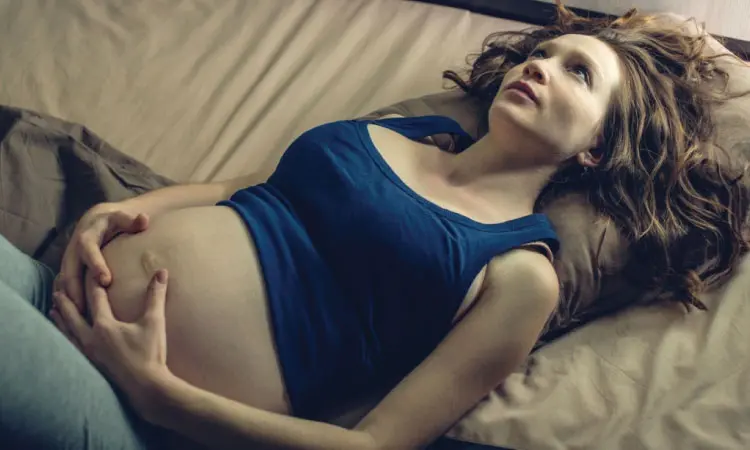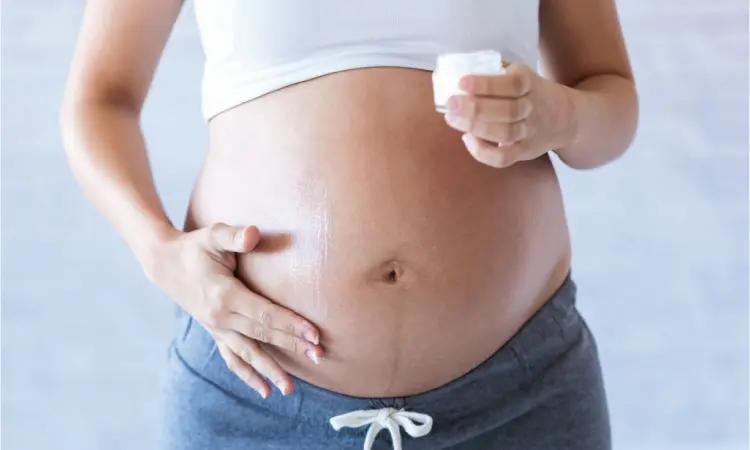Pregnancy cravings are quite popular- infact many women do crave a few weird things too. On the flip side, it is not rare for pregnant women not to eat enough, either due to loss of appetite or due to deliberate food restriction. While a lot of us have heard about “eating for two”, not eating enough during pregnancy is also not uncommon. It is very important to watch out for the symptoms of not eating enough while pregnant, as these are red flags that urge you to get back to normal food intake.
What Are The Causes Of Lack Of Sufficient Food Intake During Pregnancy?
The appetite of a pregnant woman fluctuates throughout the pregnancy. No wonder, as her body is undergoing numerous physical and physiological changes, her mind will be going through ups and downs on an emotional roller coaster. Courtesy- the pregnancy hormones.
There could be a number of reasons that may make you not want that slice of your favorite pizza or ignore that calling of your favorite snack. Your mental state, your physical well-being and even other factors can bring about a lack of interest in food intake during pregnancy.
Reasons for not feeling hungry during pregnancy first trimester
Once you learn about your pregnancy, there’s probably a lot going on in your mind and body alike. Lets discuss some of the reasons for not feeling hungry during the initial stages of pregnancy-
- Loss of appetite often accompanies morning sickness and nausea, which is estimated to affect more than ¾th of pregnant women. Nausea and vomiting are two important signs of morning sickness. Nausea and vomiting (no matter mild, moderate, or extreme) could significantly affect appetite and food intake during pregnancy
- While it is normal for a pregnant woman to want to eat every few hours, if you have nausea you may have to deal with food aversions during your initial weeks of pregnancy
- Research has shown that rise and fall of human chorionic gonadotropin (hCG) during pregnancy could bring about loss of appetite
- The first trimester of pregnancy is a time women are vulnerable to mood swings, anxiety, and depression. Pregnancy-induced anxiety and depression can also bring about decreased appetite and a reduced intake of nutrient-dense foods. It is not uncommon to skip meals during this phase of pregnancy
Sometimes, owing to constant changes in your mood coupled with morning sickness can make you not want to eat just like that. At other times, foods that you loved pre-pregnancy could simply not go down well with you. It takes some weeks for a woman to tune in to her taste buds during the initial days of pregnancy.
Reasons for not feeling hungry during pregnancy second trimester

The second trimester of pregnancy (mid-pregnancy) is considered the best of the three trimesters. Morning sickness generally disappears, and energy levels will be restored during this phase of pregnancy. Still, many mothers experience a loss of appetite during this phase. This so happens because-
- The uterus is increasing in size and starts to exert pressure on the stomach. This can contribute to loss of appetite
- During this phase, the level of progesterone hormone increases. This can contribute to constipation. Constipation can cause loss of appetite
- Certain medications, even though safe during pregnancy, can contribute to decreased appetite
Decreased appetite could also be because of digestive issues, or the inability to eat a regular mean in one go. It is best to opt for quick filling, nutritious snacks every few hours to effectively deal with loss of appetite during the second trimester of pregnancy.
Reasons for not feeling hungry during the third trimester
Our panel gynaecologist Dr Ankita Patel Tayal says that the third trimester is a marked phase of fetal growth and not eating enough can make the baby not gain enough weight. Yet, there may be many women who do not feel hungry in the third trimester of pregnancy as well.
Calculate Due Date With LMP
- By this time, the uterus starts to max out. It exerts immense pressure on the stomach and small intestine. Therefore mothers may not feel hungry
- The progesterone level peaks during the third trimester, and progesterone-induced constipation contributes to the loss of appetite
- Weight gain is more obvious during the third trimester when the weight gain max out. Mothers who are having an intense fear of gaining weight tend to go for deliberate food restriction during this phase of pregnancy
As every woman who has ever been pregnant will tell you, weight gain in the guidance of your doctor is a healthy side-effect of pregnancy. Do not shy away from food just because you do not like the way you look at 8 months pregnant! This way, you are not only putting your baby at risk, but also creating issues for your own recovery after delivery.
Related Reading: What To Do When You Don’t Feel Like Eating During Pregnancy?
11 Symptoms Of Not Eating Enough While Pregnant
“You will have issues delivering a baby if you keep on eating for two”.
“Additional weight gain during pregnancy will bring out many undesired effects at the time of delivery”.
The above are just a few statements which pregnant women often hear, making them fear weight gain and in turn become averse to food. While it is true that overeating during pregnancy can cause many undesirable effects, inadequate eating also has a negative impact on the healthy progression of pregnancy. Here are 11 symptoms of not eating enough while pregnant- which you should be watchful of.
1. Not optimum weight gain
Pregnancy is a time an expecting woman gains weight. Optimal weight gain is one of the signs of a healthy pregnancy. While weight gain during pregnancy varies largely, the NHS.UK states that most pregnant women gain between 10kg and 12.5kg. Most of this weight is gained after 20 weeks into pregnancy.
However, if an expecting woman is losing weight instead of gaining, it could be one of the symptoms of not eating enough while pregnant. Yet, this is best confirmed by the doctor because typically, mothers who cope with extreme nausea during the first trimester of pregnancy tend to lose weight. Which is fine, as long as your doctor says so.
Dr Ankita Patel Tayal, MD obs & gynae, says that even if you are not losing weight, you still may be malnourished if you are not eating enough. And your baby may not be getting enough nutrients to survive and thrive. So do discuss with your doctor on the same.
Related Reading: 18 Foods To Eat To Increase Fetal Weight During Pregnancy
2. Constant hunger
If you feel hungry all the time, it may be because you are not eating properly at proper intervals. If you do not supply the body with the amount of food it needs, you will feel hungry all the time.
Constant hunger is one of the classic symptoms of not eating enough while pregnant.
3. Constipation can be a sign you are not eating enough
Insufficient intake of food can lead to constipation. To a certain extent, constipation happens due to insufficient waste products to produce stool. If the food in the digestive tract is considerably less than normal, it moves very slowly through the digestive tract.
As it is pregnancy makes you vulnerable to constipation and consuming less food will only make it worse. It is a sign you are not eating enough during pregnancy and you should carefully monitor how much you are eating.
4. Extreme tiredness and dizziness- classic symptom of not eating enough when pregnant

Extreme fatigue and dizziness are other classic symptoms of not eating enough while pregnant. You get energy from the food you eat. If you did not have enough food, your energy level would not be up to mark. You will find it hard to concentrate and coordinate thoughts and bodily functions.
Not having enough energy to carry out different functions can cause extreme tiredness. Not having enough food before going to bed more often makes a pregnant women shaky, lightheaded, and weak in the morning.
Related Reading: How To Cope With Extreme Tiredness In Early Pregnancy
Intake of lesser calories would also mean that your metabolic rate will slow down and you will be tired most of the times. A healthy, balanced diet is the key to a healthy pregnancy.
5. Symptoms of not eating enough during pregnancy- you always feel cold
If you persistently feel cold, not eating enough food could be the cause. Our body needs sufficient energy to fuel metabolism and to maintain optimum body temperature. When you do not eat enough, the calorie intake will be considerably low.
Not having enough calories to burn will affect the temperature regulation of the body. As a result, the core body temperature will fall noticeably. This can make you feel cold continuously.
6. Hair loss and brittle nails during pregnancy
Not eating enough food during pregnancy affects protein intake as well. Protein, as we know, is the building block of your and your baby’s connective tissue and skin, growth and regeneration of cells. Pregnant or not, eating a diet rich in proteins is always a good choice.
Hair and nails need a number of nutrients to sustain. Also, the body does not consider them as important if it were to priorities basis what you are eating.
Eating less or eating a diet which does not have inadequate protein can bring about hair thinning and brittle nails. Therefore, if you notice these issues, count them as a sign of inadequate intake of food.
7. Disrupted sleep

When you go to bed without eating enough during pregnancy, even though the body goes to rest, the mind could be alert with hunger pains. Hunger pangs can wake you up in the middle of the night. Interrupted sleep during pregnancy could trigger many health issues.
You will feel hungry when you hit the bed, and again wake up hungry. This indicates you are eating less than what you should.
8. Irritability and mood swings
Not eating enough food during pregnancy aggravates mood swings. There is a scientific reason behind this. When you did not eat enough, the blood glucose level decreases significantly.
When the blood sugar level is too low, it increases the production of cortisol and adrenaline. The former is a stress hormone, and the latter the fight-or-flight hormone. Once these hormones are released into your bloodstream contributes to anger, irritability, and extreme mood swings.
Related Reading: Household Work During Pregnancy – What Do And What To Avoid
9. Anemia is a symptom you are not eating enough
Pregnancy is a time women are more susceptible to iron deficiency and anemia. Not eating enough food first affects the iron intake as pregnant women get a larger portion of daily required iron from their food. Inadequate iron intake brings about anemia that can create many complications during pregnancy.
10. Compromised immunity
Not eating enough during pregnancy can take a toll on the immunity of the mother. Already a pregnant woman’s immunity level is low. If not eat enough during pregnancy, the mother will not receive specific nutrients like vitamin A that are vital for fighting off the illness.
Related Reading: 11 Simple Ways To Boost Immunity During Pregnancy
Therefore, getting an infection more often during pregnancy can be counted as one of the symptoms of not eating enough while pregnant. Even common colds will take more time to cure if you fail to meet the nutrition requirement of the body.
11. Unhealthy skin

Skin problems are one of the side effects of staying hungry during pregnancy. If a person’s body does not get a sufficient amount of nutrients, such as biotin, thymine, and vitamin E, it can adversely affect the health of the skin. Issues like scaly skin and dry skin are common in women who do not eat enough during pregnancy.
FAQs
Both the pregnant woman and the developing fetus will have some special needs regarding food. As the woman needs to provide nutrition to the fetus, it is important for the soon-to-be mom to eat more food. Not eating a sufficient amount of food during pregnancy can have dire consequences.
It can increase the chance of malnutrition for both the mother and the unborn child. It can cause a deficiency in nutrients that are essential for the growth and health of the fetus and the mother. This includes vitamins and minerals, which are important for the proper functioning of the body and immune system.
The fetus leaches vital minerals like calcium from the bones of the mother. This increases the risk of osteoporosis in the future. Not eating enough during pregnancy also affects the lactation phase after delivery. The mother may fail to produce enough milk.
If you do not eat as much as you need to during pregnancy, it can also have some very harmful consequences for your little one, some of which can affect them even after they are born.
It can hinder your baby’s healthy growth and damage their development. It can cause them to be born at unhealthy or low birth weight. Eating less during pregnancy has also been associated with behavioral problems and issues with mental function in children.
If the loss of appetite is very extreme, it is also possible to experience some worse side effects. For example, it can cause the fetus to develop physical growth abnormalities. It is also possible for lack of sufficient food intake to cause preterm labor.
No studies have proved not eating enough causes miscarriage. It will, however, take a toll on a mother’s health which might increase the risk of miscarriage. There are some vital minerals and vitamins that the growing fetus will get through the food the mother eat.
Not eating enough food during pregnancy will adversely affect nutritional intake. As a result, fetal development may get affected. This might also increase the risk of miscarriage. Insufficient food intake can bring about premature delivery and low birth weight. However, so far, there is no evidence to say not eating enough while pregnant causes miscarriage.
Not gaining expected weight gain during pregnancy is one of the important physical signs of not eating enough during pregnancy. Also, not eating enough affects your energy levels. You feel continuously tired.
You may contract health issues due to insufficient intake of nutrients, like anemia. Hair loss, increased mood swings, not getting enough sleep, waking at mid-night due to hunger, and irritation can be counted as other signs you are not eating well.


